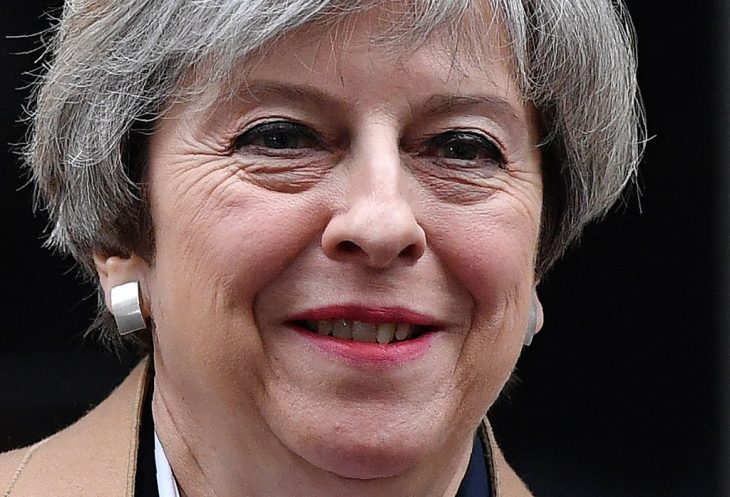Is Theresa May’s media honeymoon over? The bungled Budget might have led to a raft of bad headlines for the Government, but these were mostly aimed in Philip Hammond’s direction. Today, the Sun turns its fire on the Prime Minister. The paper says May has ‘shown she understands what most Brits want’ from Brexit. But it adds a crucial caveat: ‘until now’. The Sun says that while it agrees with her plan to leave the single market behind, it is ‘deeply concerned by suggestions that free movement may apply for a further three years’ after Brexit. Most Brits who wanted out of the EU did so to tighten up Britain’s immigration policy, the paper points out. And a Brexit plan involving open borders ‘would not only be ripe for exploitation, it would be seen by many as a betrayal of the referendum vote’. Time for Theresa May to have a re-think, the paper suggests.
It’s not all bad news in the papers for the Prime Minister though – she still has the wholehearted backing of the Daily Mail. Instead of turning on Theresa, the Mail hits out at those sitting on the Brexit committee. The Mail asks of those who produced the report calling into question the Prime Minister’s statement that ‘no deal was better than a bad deal’: ‘what do (you) hope to achieve by sneering at Theresa May’? These MPs would do well to remember that the ‘poker game (has) now begun’, says the paper – and attempts to undermine the Prime Minister can only result in one thing: encouraging ‘EU negotiators to push for a harder bargain’. But it’s not only those on the Brexit committee trying to do Theresa May down, suggests the Mail. The BBC, argues the paper, is helping the cause of the government’s critics by ‘bowl(ing) underarm at Remoaners’ during interviews. Today presenter Nick Robinson might be right when he says that ‘the BBC is free of its duty to balance each pro-Remain voice with one for Leave’ now that the referendum is over. But that still doesn’t ‘excuse his colleague Mishal Husain, who yesterday asked the Remoaner London mayor how the Government could stop jobs leaving the capital after Brexit’. Instead of talking about job losses, ‘shouldn’t she have challenged Khan to explain why jobs have flooded into the capital since the vote?’, the paper concludes.
Meanwhile, Theresa May’s trip to the Middle East is also a talking point in the papers. The Prime Minister said her visit to Saudi Arabia was an example to women living there. ‘It’s easy to be cynical’, says the Times. ‘But advancing human rights is an important diplomatic goal, and there is no reason to doubt the sincerity of Mrs May’s message,’ the paper argues. Working with a ‘non-expansionist autocracy’, might not be ideal, suggests the Times. But it’s better than the alternative: co-operating with ‘Islamist extremism’. Even if we do work together, though, this ‘co-operation should be clear-eyed’; ‘Mrs May is right to adopt a cautious approach’, the paper argues.
But the Guardian is less impressed with Theresa May’s visit to Saudi Arabia. The paper says the country’s ‘values are autocratic and illiberal at best’ and women there ‘are treated as second-class’. Yet working with such nations is increasingly part of the post-Brexit reality, argues the paper, which says that ‘as we leave Europe, we turn our backs on countries with, for the most part, liberal and democratic values’. In their place, the Guardian says, we will inevitably be ‘opening ourselves to those whose values are often neither liberal nor democratic in any way’. The paper says that Liam Fox saying that Britain has ‘shared values’ with the Philippines’ leader President Duterte, is a case in point. How depressing, suggests the paper, that ‘the supposed national interest of post-Brexit Britain has converged with that of a supremely boastful Philippines leader whose self-described war on drugs has killed more than 7,000 of his own people.’







Comments